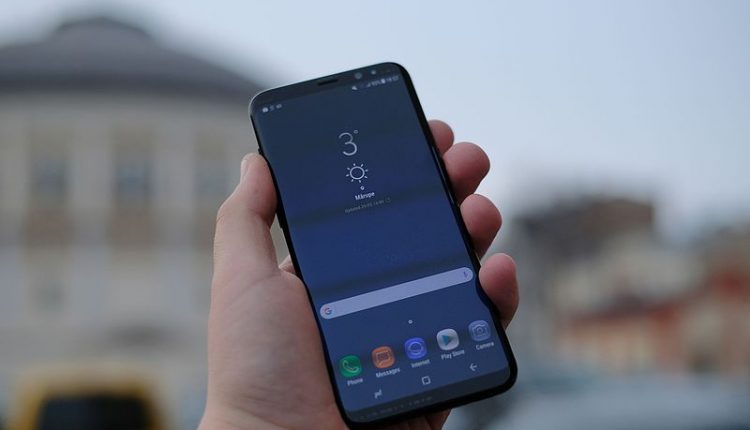Iran mobile networks
Iran mobile networks, eSIMs, MVNOs and more
If you’re planning a trip to Iran or are set to become a resident, it’s essential to understand the mobile network landscape. With several carriers to choose from, picking the right provider can seem daunting. This guide outlines key mobile networks in Iran and their services, ensuring you can stay connected effortlessly.
Iran Mobile Operators
Iran’s mobile network market is dominated by three main providers: Hamrah-e Aval (MCI), Irancell, and Rightel. These operators offer a mix of prepaid and postpaid services, 3G, 4G, and in some areas, 5G coverage. But, there are many more top pick from apart from the old boys offering some great discounts

Hamrah-e Aval: Iran’s First and Largest Network
Also known as MCI, Hamrah-e Aval holds the distinction of being Iran’s first mobile network operator. With a comprehensive reach across the country, Hamrah-e Aval offers strong network coverage, even in remote areas. From basic call and text packages to data plans and international roaming, Hamrah-e Aval provides a range of services to meet various customer needs.
In short, MCI or locally called Hamra e-Avval (The First Network) is the largest network in Iran in terms of the number of users and broadcast antennas. You can buy their SIM cards at several stores locally and at most international airports. The firm provides comprehensive 3-4.5G internet services as well strong voice calls. The network does have an English language website, however, bills only are presented in Persian, so you may need to have a local friend help you figure it out if you cannot read the local script.
![]() MTN Irancell: Catering to the Tech-Savvy
MTN Irancell: Catering to the Tech-Savvy
Irancell, co-owned by South Africa’s MTN Group and Iran Electronic Development Company, is a popular choice among the younger, tech-savvy demographic. Irancell was the first to introduce 4G services in Iran and continues to innovate with competitive data plans, making it an ideal choice for heavy internet users.
Interestingly, MTN-Irancell is the second biggest network in the country. The provider is jointly owned by South Africa’s MTN network and local firms. The network — like the MCI — has a good overall signal and strong 3-4.5G mobile internet across Tehran and other major cities. The company also provides a comprehensive home wireless internet package with its discounted modems. However, if you are in a weak signal area you may have to purchase a third-party modem with an external antenna — from experience…

The company is particularly popular with resident foreigners and tourists as it has an English language online payment platform making bill paying easier as well as apps on Android to support their services. MTN is also actively attempting to catch travellers at Imam Khomeini Airport and has a booth just after baggage collection.
Rightel: Pioneering 3G Services
Rightel, the third major player, made waves by being the first operator to provide 3G services in Iran. Since then, it has expanded its network capabilities to 4G and offers a range of services, including data plans and value-added services like video calls. Rightel’s commitment to innovation makes it a top contender in Iran’s mobile network market.

Choosing the Right Network in Iran
Selecting a mobile network in Iran boils down to your specific needs. Hamrah-e Aval’s widespread network is ideal for those needing broad coverage, while Irancell’s data-friendly packages are perfect for internet-heavy users. For those seeking innovative services like video calling, Rightel is a worthy choice.
Besides, before settling on a network, consider factors like coverage area, internet speeds, service offerings, and cost of plans. It’s also worth noting that all three providers offer visitor SIM cards, a convenient option for travelers.

Staying Connected in Iran
Furthermore, staying connected while in Iran is easy with the country’s robust mobile network landscape. Whether you’re seeking expansive coverage, hefty data packages, or innovative services, Iran’s mobile networks have got you covered. Do your research, pick the provider that best suits your needs, and stay connected with ease.
MVNOs and Resellers
An MVNO is a wireless communications services provider that does not own the mobile network infrastructure over which it provides services to customers but in fact, pays a fee to the network operators.
SamanTel
 SamanTel is one of the latest entrants to the SIM card market in Iran and is backed by Saman Bank. The company offers SIM cards on its main website. The website does not currently offer an English service, however, you can register for a SIM card with the help of someone who speaks Persian.
SamanTel is one of the latest entrants to the SIM card market in Iran and is backed by Saman Bank. The company offers SIM cards on its main website. The website does not currently offer an English service, however, you can register for a SIM card with the help of someone who speaks Persian.
Shatel Mobile
 Shatel Mobile, is the offspring of Shatel Internet, Iran’s biggest ADSL internet provider. The company currently offers SIM cards for mobile phones as well as TD-LTE internet services like MTN-Irancell for wired modems. Again, the website does not currently offer an English language version and if you were to opt for this firm you would need the assistance of a Persian speaker to register. Speaking with representatives from the company you are able to purchase a SIM card from the firm with foreign passport details.
Shatel Mobile, is the offspring of Shatel Internet, Iran’s biggest ADSL internet provider. The company currently offers SIM cards for mobile phones as well as TD-LTE internet services like MTN-Irancell for wired modems. Again, the website does not currently offer an English language version and if you were to opt for this firm you would need the assistance of a Persian speaker to register. Speaking with representatives from the company you are able to purchase a SIM card from the firm with foreign passport details.
LotusTel
 Another bank-backed MVNO is LotusTel, supported by Parsian Bank. Like the other providers, SIM cards can be ordered from the firm’s website and again only in Persian. The company also claims to support office and home internet through LTE-TD packages available on its website.
Another bank-backed MVNO is LotusTel, supported by Parsian Bank. Like the other providers, SIM cards can be ordered from the firm’s website and again only in Persian. The company also claims to support office and home internet through LTE-TD packages available on its website.

eSIM for Iran
In the era of digital revolution, physical SIM cards are progressively being replaced by embedded SIMs (eSIMs) – a more flexible and convenient choice for the global traveler. For those visiting or staying in Iran, there are several eSIM providers offering a variety of plans to cater to different data needs. Here’s an overview of some top eSIM providers operating in Iran.
What is an eSIM?
An eSIM, or embedded SIM card, is a permanently fitted component inside the device, unlike traditional SIM cards that can be inserted or removed. While this might initially appear as a limitation, it’s actually designed for flexibility. Instead of being tethered to one specific network, the eSIM has the ability to switch networks as and when you decide to change providers.
Ubigi
Ubigi offers numerous eSIM plans for Iran, ranging from small short-term data allocations to more extensive month-long packages. Their ‘ASIA’ plan offers 500MB for 1 day at $3.00 or 1GB for 30 days at $12.00. They also have ‘WORLD’ packages that provide 500MB for 1 day at $9.00 and for 30 days at $25.00. For those in need of a more substantial monthly data allowance, Ubigi’s ‘MIDDLE EAST’ package provides 1GB for 30 days at $29.00.
BNESIM
Another provider, BNESIM offers a couple of options tailored for usage in Iran. Their ‘Surf 500MB/month’ plan provides 500MB per month at $8.78. Another offering is the ‘Surf 500MB’ plan that does not have an expiration date, priced at $13.51.

Airalo via Mehr Mobile
Also. Airalo provides a few different options, including the ‘Mehr Mobile – 1 GB’ plan valid for 7 days at $9.50 and ‘Menalink – 1 GB’ for 7 days at $15.00. They also offer a ‘Menalink – 2 GB’ plan for 15 days at $28.00, providing a higher data limit for longer stays.
Flexiroam
Interestingly, Flexiroam’s ‘Global Plan’ provides flexibility with 500MB for 15 days at $12.99 or 1GB for 15 days at $19.99. This plan can be particularly useful for users needing a balance between data allowance and plan duration.
Other Providers
To summarize, there are several other eSIM providers offering services in Iran. These include eSIMplus with its ‘Africa, Middle East 23+’ plans and RedteaGO’s ‘Middle East (10+ countries)’ plan. Prices and data allowances vary.
With the advent of eSIM technology, staying connected in Iran has become significantly simpler and more flexible. Make sure to compare all available eSIM options to find a plan that best suits your specific needs for data, duration, and price.
Finally, Remember prices change often and that the prices above are examples at the time of writing.

 MTN Irancell: Catering to the Tech-Savvy
MTN Irancell: Catering to the Tech-Savvy
